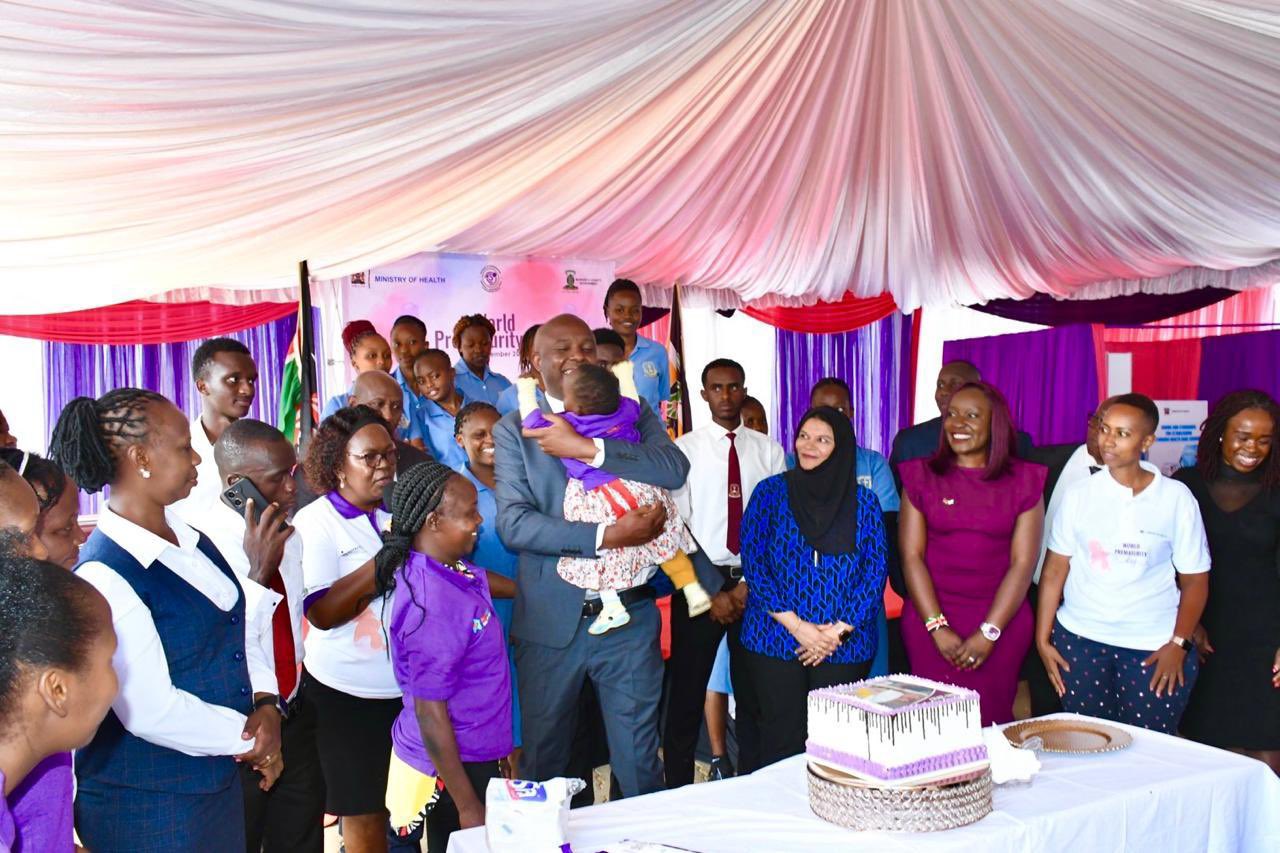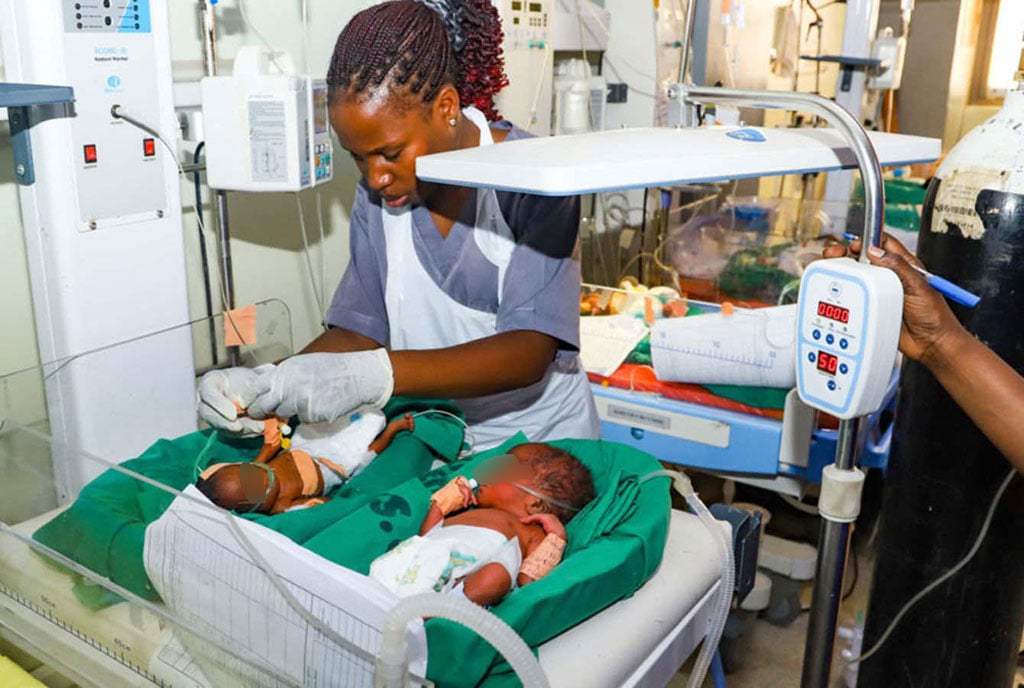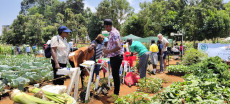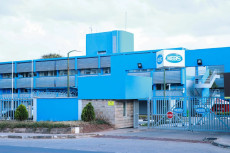- On World Prematurity Day, Kenya unveiled the Every Woman Every Newborn (EWENE) Acceleration Plan supported by three national enablers Newborn Investment Case, Mentorship Package, and Norms & Standards to strengthen care for premature babies across counties.
- Murang’a County showcased best practices such as Kangaroo Mother Care, expanded newborn units, and digital health tools, aligning with Universal Health Coverage to reduce neonatal deaths, which currently account for 51% of under‑five mortality in Kenya.
According to the United Nations, each year 15 million babies are born preterm and 1 million die from complications. Preterm birth refers to babies born alive before 37 weeks of pregnancy are completed. It is classified into three categories: extremely preterm (under 28 weeks), very preterm (28 to less than 32 weeks), and moderate to late preterm (32 to 37 weeks).
Deliveries may occur due to spontaneous early labour or medical reasons that necessitate induction or caesarean section.
As the world reflects on the difficulties that come with preterm birth, Kenya is moving forward with initiatives to save and enhance the health of premature babies. Every year on November 17, the world commemorates World Prematurity Day, first marked in 2011 in memory of infants lost to prematurity.
The day was championed by organizations such as the European Foundation for the Care of Newborn Infants (EFCNI), LittleBigSouls, and the Australian National Premmie Foundation, determined to highlight the struggles of preterm infants and their families.
Prematurity remains the leading cause of infant deaths under five worldwide. Survival chances vary drastically between rich and poor countries. In low-resource areas, half of infants born at or below 32 weeks die due to lack of simple, affordable interventions such as warmth, breastfeeding, and basic infection or respiratory care.
In developed countries, survival rates for these infants are nearly 100%, while middle-income countries face challenges of technology misuse, leading to increased disabilities among survivors.
This year’s theme, “Give preterm babies a strong start for a hopeful future,” guided commemorations worldwide, including at Murang’a County Referral Hospital. The event was attended by Governor Dr. Irungu Kang’ata and Dr. Nazila Ganatra, Director of Health Products and Technologies at the Ministry of Health, representing the Cabinet Secretary for Health.

Dr. Ganatra emphasized that premature birth is a major cause of infant deaths in Kenya, noting that most of these deaths are preventable with timely, quality care. She unveiled the National Every Woman Every Newborn (EWENE) Acceleration Plan, a framework designed to extend newborn care from local facilities to county hospitals.
Supporting this plan are three national enablers: the Kenya Newborn Investment Case, the National Mentorship Package for Newborn Care, and the National Norms and Standards for Newborn Care.
Murang’a County was recognized for its leadership and dedication to neonatal health. Key projects include improved use of digital data, provision of essential medicines, wider adoption of Kangaroo Mother Care, strengthened community health units, and structural upgrades such as an expanded Newborn Unit and a Biomedical Workshop.
This is in line with the World Health Organisation’s (WHO) recommendation of kangaroo mother care immediately after birth.
“Families should never be separated from their preterm baby, even in intensive care,” says the WHO.
According to Dr. Ganatra, these actions align with the government’s Universal Health Coverage (UHC) scheme, which emphasizes building a qualified health workforce, digitizing health services, ensuring commodity supply, and providing financial protection through the Social Health Authority (SHA). Families were urged to register with SHA to guarantee access to essential maternal and newborn services at little or no cost.
Dr. Edward Serem, Head of the Division of Reproductive, Maternal, Newborn, Child and Adolescent Health (RMNCAH), reinforced the urgency of the mission: “We want to address issues of maternal and newborn health in this country. Put efforts to sensitise people who matter. We don’t want situations of mothers and newborns dying.”
Kenya’s decision to actively confront premature birth one of the leading causes of infant mortality echoes the theme of the 63rd World Health Assembly: “Provide preterm babies a strong start for a hopeful future.”
Through the EWENE Acceleration Plan, national enablers, and county-level innovations like those in Murang’a, the country is laying the foundation to reduce avoidable newborn deaths and give every infant the chance to thrive.
Sustained investment, accountability, and community collaboration will be critical to ensure that premature babies not only survive but grow into healthy adults embodying the promise of “a strong start for a hopeful future.”
Stay connected with us on WhatsApp and X for instant updates and breaking news as it happens.








